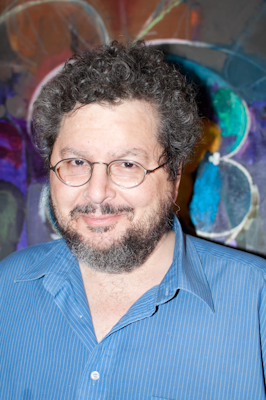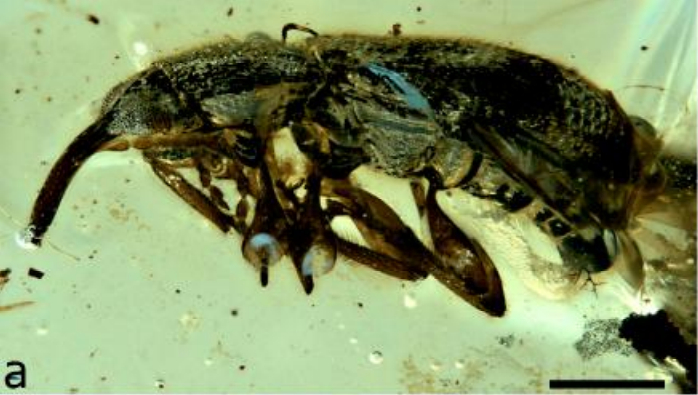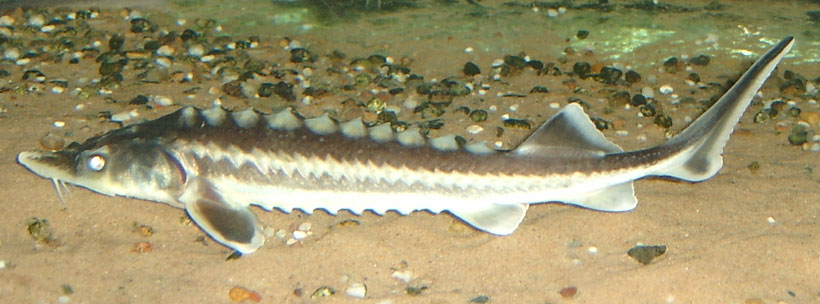Evolution a replacement religion?

How scientific evidence gets ignored
First published in Prayer News, CMI-UK/Europe, October 2020.
Chances are you may not have heard of renowned writer and Yale University professor David Gelernter (School of Engineering and Applied Science). He has been making waves since acknowledging that he now rejects Darwinian evolution. In an interview organised in 2019 by the prestigious Hoover Institution (Stanford University, California), Gelernter lamented the obstruction of free speech experienced by anyone trying to voice alternatives to evolution, such as Intelligent Design. Worse still, he said, some pro-Darwinian academics actually seek to destroy the careers of dissenters:
“It’s a bitter rejection … a sort of bitter, fundamental, angry, outraged, violent rejection, which comes nowhere near scientific or intellectual discussion. I’ve seen that happen again and again. ‘I’m a Darwinist, don’t you say a word against it, or, I don’t wanna hear it, period.’”1
Elsewhere, in his review of Stephen Meyer’s excellent book Darwin’s Doubt (see our review here), Gelernter makes this interesting remark about the passionate defenders of evolution:
“They remind us of the extent to which Darwinism is no longer just a scientific theory but the basis of a worldview, and an emergency replacement religion for the many troubled souls who need one.”2
Everyone knows, of course, that the displaced religion referred to by the good professor is Christianity, more specifically, that which has a high view of Scripture as the inspired, inerrant Word of God— including the belief in supernatural Creation, resting upon a grammatical-historical understanding of Genesis.
Gelernter has many predecessors (including secular humanists) who have admitted the religious and philosophical nature of Darwinian evolution.3 But surely evolution is science, not “an emergency religion” as Gelernter claims? According to the OED, the word ‘religion’ includes “a pursuit, interest, or movement, followed with great devotion”, and “action or conduct indicating belief in, obedience to, and reverence for god, gods, or similar superhuman power”.4 If you substitute ‘god’ for the alleged power of Darwin’s theory (in any of its modern forms) and factor in the zeal and fervour of its adherents, these definitions fit perfectly.
Christians are often despised by secular writers and commentators for their faith-based acceptance of biblical miracles because these cannot be scientifically tested. Yet these same antagonists get very frustrated if their own beliefs are subjected to the same scrutiny! They want an exemption, expecting their own unsupported beliefs (their non-scientific assertions) to be accepted without question or criticism.
Keeping the faith in spite of contrary science
The many research reports from all fields of science provide ample reasons for people to question both neo-Darwinian evolution and deep time. Nevertheless, as the following very recent examples illustrate, many still cling religiously to their naturalistic worldview.
Manifestly mistaken over millions of years
“New research published … in Proceedings of the Royal Society B highlights dozens of amber fossils from the Cretaceous period that still contain evidence of their occupant’s original colours. Bursting in metallic blues, purples, and greens, these ancient insects are both alien and oddly familiar.”5

Allegedly this amber from Myanmar is 99 million years old but the entrapped insects look very “familiar” because they’re just like their living counterparts. It’s strong evidence against the ‘dates’ assigned to these exquisitely preserved creatures. No matter what level of fossil preservation is discovered, few scientists think to question their evolutionary worldview, as with the discovery of subcellular structures—nuclei and chromosomes—in a duck-billed dinosaur bone:
“Our data support the hypothesis that calcified cartilage is preserved at the molecular level in this Mesozoic material, and suggest that remnants of once-living chondrocytes [cartilage cells], including their DNA, may preserve for millions of years.”6
This is a denial of the results of scientific experiments that have eliminated even the possibility of such preservation.7 Instead, it is very strong evidence that these dinosaurs lived only thousands of years ago.
Hesitant about hybrids
Scientists who subscribe to biblical creation have long predicted there should be many instances of hybridisation between diverse members of the same created kinds. We now know, for example, that all species of horses, asses, donkeys and zebras (family Equidae) can form hybrids. Six of the eight bear species (family Ursidae) can hybridise, as can 81% of all 149 species of ducks, geese and swans (family Anatidae).8 This confirms that these creatures diversified only during the last few thousand years. In view of this high level of cross-breeding (often with fertile hybrids), claims that they separated millions of years ago are scientific nonsense (see, e.g. the surprising ‘belwhal’). Fish scientists were recently astonished by the unlikely crossbreeding of two very different species:


The offspring varied in appearance but have all been dubbed ‘sturddlefish’!9 Aquatic ecologist Solomon David exclaimed, “I did a double-take when I saw it. … I just didn’t believe it. I thought, hybridisation between sturgeon and paddlefish? There’s no way.”10
Indeed, the Russian sturgeon and the American paddlefish look very different—evolutionists believe they have been isolated for countless millions of years. But the evidence says no, instead confirming the creationist expectation of great diversity within each created kind.
A replacement religion
Far too often, popular science is reported in a way that portrays evolution as hard science—whether radio, news outlets, social media or magazines. Refreshingly honest admissions among evolutionary writers are few and far between, but there are some. Writing about human racial origins Angela Saini acknowledges:
“It’s impossible to escape our beliefs, our upbringing, our environment, even the pressure of wanting to be correct, when it comes to interpreting the facts. Our stories get in the way.”11
Quite right, and we have seen supporting examples of just how true this is for many who tenaciously hold onto evolution. They seldom question the narrative because it is their substitute origins story. It permits the secular ‘faithful’ to ignore the claims of the Creator (see also Getting behind the evolution façade).
But does this replacement religion offer its devotees answers to the big questions of life:
- Questions of origins—Where did we come from?
- Questions of meaning—Why am I here?
- Questions of destiny—What happens after I die?
Many claim that evolution does answer these questions. While it is fundamentally an alternative theory of origins it is far more than that, as a re-reading of David Gelernter’s earlier-quoted words confirms.1,2 For example, British physicist and TV personality Brian Cox (a confessed humanist) admits:
“… there is self-evidently meaning in the universe because my own existence, the existence of those I love, and the existence of the entire human race means something to me. I think this because I have had the remarkable luxury of spending time in education.”12
Sadly, he rejects the existence of his Creator, the One from whom life emanates and whose revealed scriptures give the only reliable answers about the meaning of human existence and destiny. David Gelernter is surely right in his opinion that “Darwinism is … an emergency replacement religion for the many troubled souls who need one.” But that spiritual craving in human beings can only be satisfied by embracing the undiluted truth of the Creation/Fall/Gospel message of the Bible. Compromises like ‘God used evolution’ will not do.
The truth and nothing but the truth
A. E. Wilder-Smith (1915–1995) was a Swiss-born, British scientist with a brilliant mind and three earned doctorates. His many books presented a strong scientific challenge to evolution, but he also opposed the idea of theistic evolution. He pointed out that such an idea was contrary to Jesus’ healing miracles:
“If God worked by that way, that method [of evolution], then Jesus ought never to have preached the Sermon on the Mount because Jesus is the Creator. All things were made by him and for him, for his glory and enjoyment. Now if he made the world by the process of eliminating the handicapped and the sick, then he ought never to have said, ‘Blessed are the meek, for they shall inherit the earth.’ … You see, everything which is Christian, everything which is really the mind of Christ, has been cut out if you say that it was done by the mechanism of neo-Darwinian theory; that is, by chance mutation and natural selection sorting out the unfitted from the fit, in order that the race may rise.”13
Wilder-Smith’s point is clear: Jesus constantly healed sick people, but this is diametrically opposed to theistic evolution, for this entails that God created via a process where only the fit survive. Creation by the Word of God (Jesus) reveals His vast wisdom and intelligence, the very antithesis of anything haphazard or accidental. Souls who are troubled by the misery, sickness and suffering of this world are desperate for answers. There is no substitute for the healing, transformative grace of Jesus Christ, the Creator who became the Saviour.
References and notes
- Prestigiacomo, A., Renowned Yale Prof Leaves Darwinism, Says Intelligent Design ‘Absolutely Serious’ Theory, dailywire.com, 22 August 2019. Return to text.
- Gelernter, D., Giving up Darwin, claremontreviewofbooks.com, Spring 2019. Return to text.
- CMI has written many articles about this—simply do a search on creation.com using the words ‘evolution religion’. Return to text.
- Oxford English Dictionary, oed.com. Return to text.
- Dvorsky, G., Incredible amber fossils reveal the true colours of insects, gizmodo.com, 1 July 2020. Return to text.
- Bailleul, A.M. et al, Evidence of proteins, chromosomes and chemical markers of DNA in exceptionally preserved dinosaur cartilage, National Science Review 7(4):815–822, April 2020 | doi.org/10.1093/nsr/nwz206. Return to text.
- The following paper is just one example, which showed no DNA should survive after 20,000 years at 10°C, and no collagen protein either; Nielssen-Marsch, C., Biomolecules in fossil remains, Multidisciplinary approach to endurance, The Biochemist, June 2002, pp. 12–14. Return to text.
- Tyler, S., chapter 9 of: Theistic Evolution: A scientific, philosophical and theological critique, Edited by Moreland J.P., Meyer C., Shaw, S., Gauger, A.K. & Grudem, W., Crossway, Illinois, pp. 309–313, 2017. Return to text.
- Sarfati, J., Startling sturdlefish, Creation 43(1):17, January 2021. Return to text.
- Cassella, C., Scientists accidentally bred a bizarre hybrid of two endangered fish, sciencealert.com, 19 July 2020. Return to text.
- Saini, A., Superior: The Return of Race Science, 4th Estate, London, p. 200, 2019. Return to text.
- Cox, B., Human universe, William Collins, London, p. 241, 2014. Return to text.
- ‘Arthur Ernest Wilder Smith - Evolution vs Creation’, a recorded lecture from the 1980s, youtube.com; accessed 4 August 2020. The quoted material (1:17:38–1:18:33) is taken from a section at the end of the lecture where he is critiquing theistic evolution. Return to text.





Readers’ comments
Comments are automatically closed 14 days after publication.